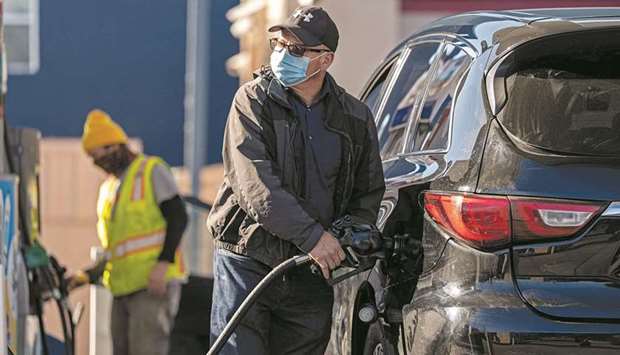US gasoline and diesel suppliers are trying to stave off fuel shortages from Atlanta to New York with barges and tankers after a ransomware attack shut down the nation’s biggest fuel pipeline.
Traders and fuel shippers are seeking vessels to deliver gasoline that would have otherwise been shipped on the Colonial Pipeline system, according to people familiar with the matter. Others are securing tankers to temporarily store gasoline in the US Gulf in the event of a prolonged shutdown, they said, asking not to be identified because the information isn’t public.
Colonial Pipeline halted all operations on its system late Friday after suffering a cyberattack that affected some of its IT systems. The company has said it’s working to restore operations but has given no timeline for a restart.
The attack comes just as the nation’s energy industry is preparing to meet stronger fuel demand from summer travel. US gasoline consumption has steadily recovered this year as the nation’s most populous states emerge from lockdowns and ease restrictions. Americans are once again commuting to the office, planning major travel for the first time and booking flights. A prolonged shutdown of system threatens to send gasoline prices skyrocketing and could stall efforts by refiners to return from a pandemic that decimated oil demand last year.
Colonial was just the latest example of critical infrastructure being targeted by ransomware. Hackers are increasingly attempting to infiltrate essential services such as electric grids and hospitals. The escalating threats prompted the White House to respond last month with a plan to increase security at utilities and their suppliers. Pipelines are a specific concern because of the central role they play in the US economy.
The Colonial pipeline is a critical source of gasoline, diesel and jet fuel to the East Coast from the nation’s refining belt along the US Gulf Coast. It has the capacity to send about 2.5mn barrels a day on its system from Houston as far as North Carolina, and another 900,000 barrels a day to New York.
The attack appeared to use a ransomware group called DarkSide, according to Allan Liska, senior threat analyst at cybersecurity firm Recorded Future. The cybersecurity firm FireEye Inc said its Mandiant incident response division was assisting with the investigation.
Ransomware cases involve hackers seeding networks with malicious software that encrypts the data and leaves the machines locked until the victims pay the extortion fee. This would be the biggest attack of its kind on a US fuel pipeline.
A key concern at present is meeting product demand in the US Southeast, which is especially dependent on the Colonial system, people familiar with the situation said.
The Northeast can secure gasoline shipments from Europe, they said, but it will come at an increasing cost the longer the pipeline stays shut.
“The longer it lasts, the more bullish it will be for refined products on the East Coast,” said Warren Patterson, head of commodities strategy at ING Group NV. “This will likely also drag European product prices higher, as we see more waterborne cargoes needing to go into the US East Coast to meet the shortfall.”
An alternative might be to use the Kinder Morgan-operated Plantation Pipeline, though it only extends as far north Washington, DC. Its capacity at 720,000 barrels a day is far short of Colonial’s and already has its own shippers moving supplies.
In the meantime, fuel producers including Marathon Petroleum Corp are weighing alternatives for how to ship their products to the Northeast.

A person wearing a protective mask holds a fuel pump nozzle at a Chevron Corp gas station in San Francisco. US gasoline and diesel suppliers are trying to stave off fuel shortages from Atlanta to New York with barges and tankers after a ransomware attack shut down the nation’s biggest fuel pipeline.
